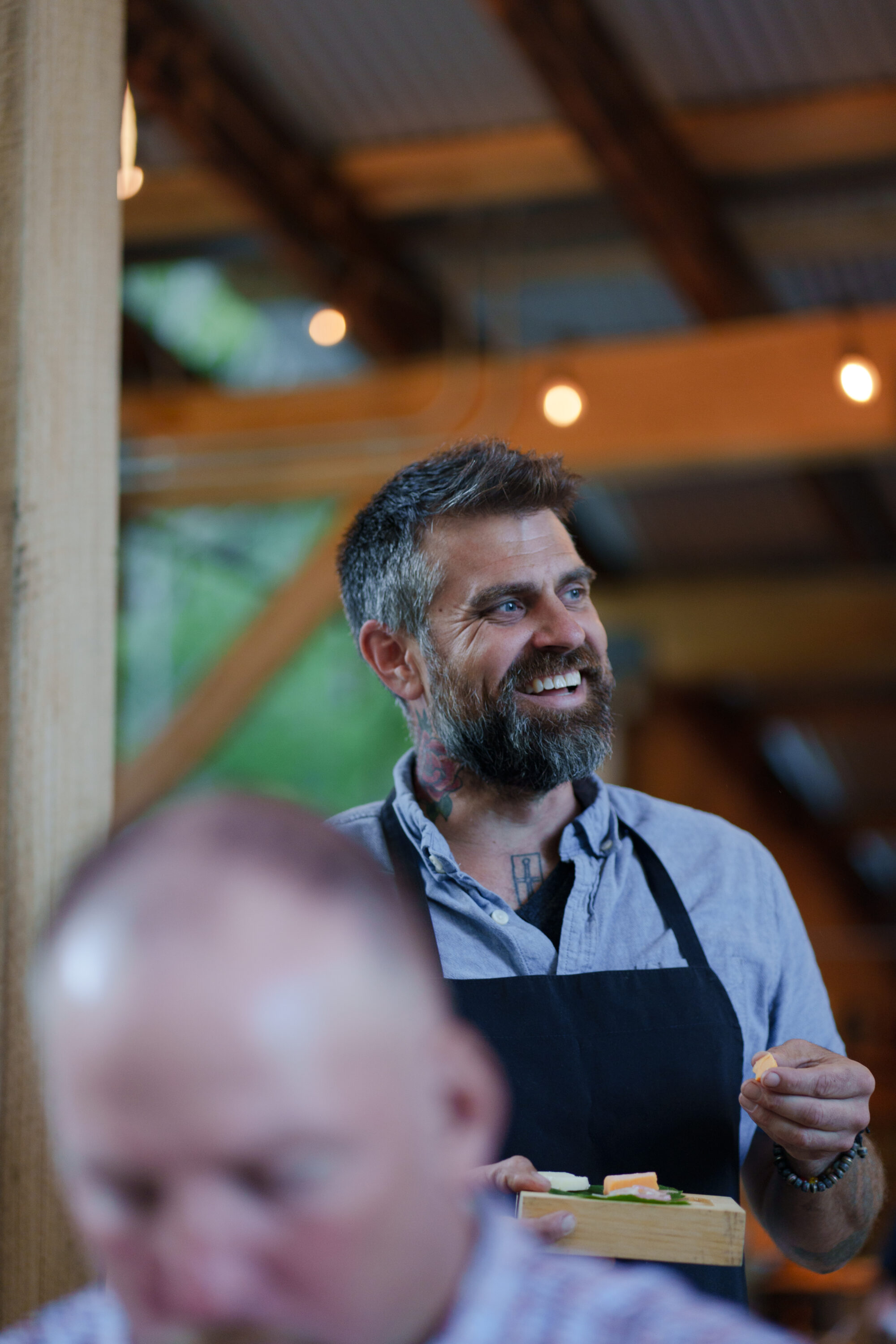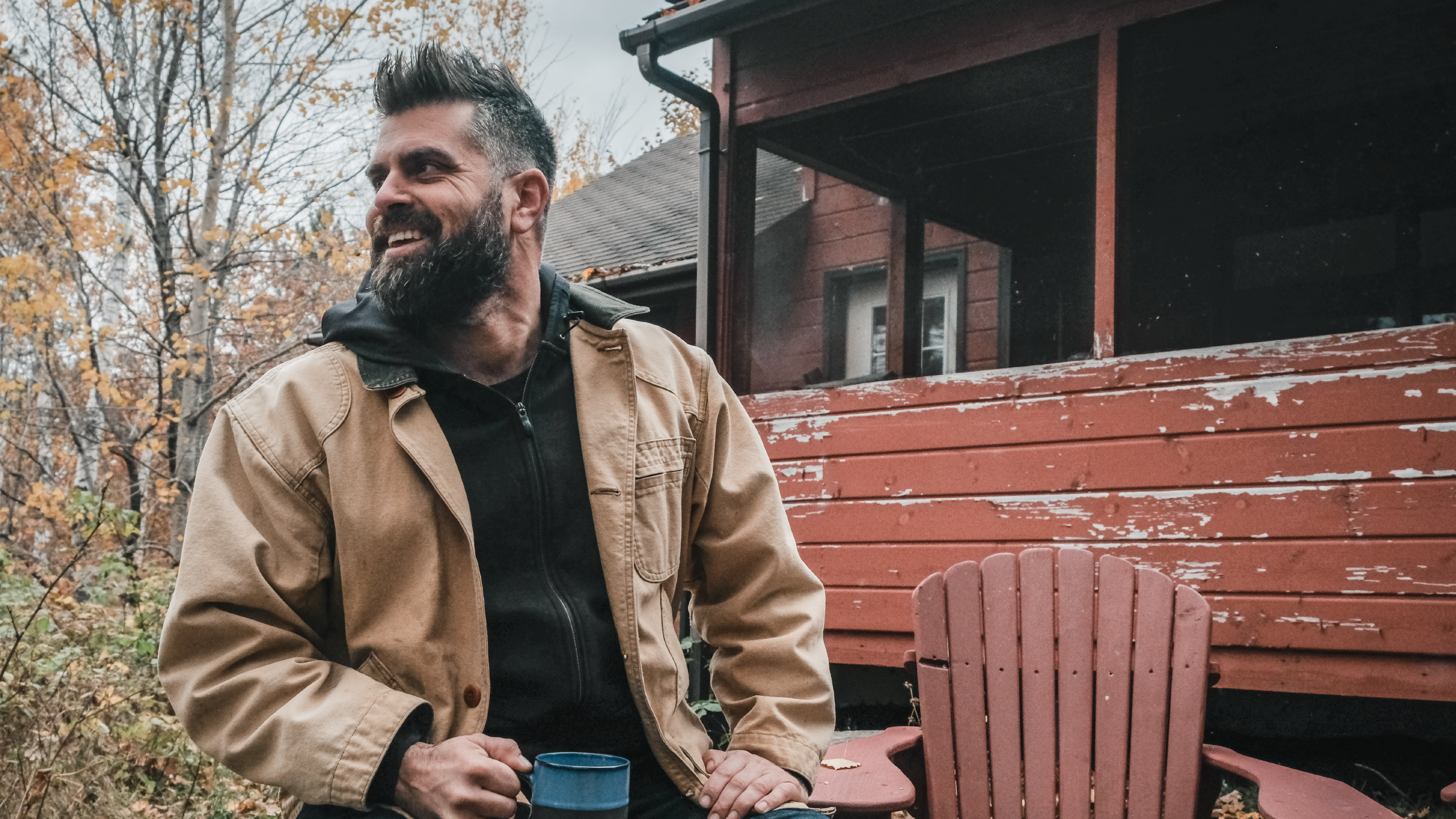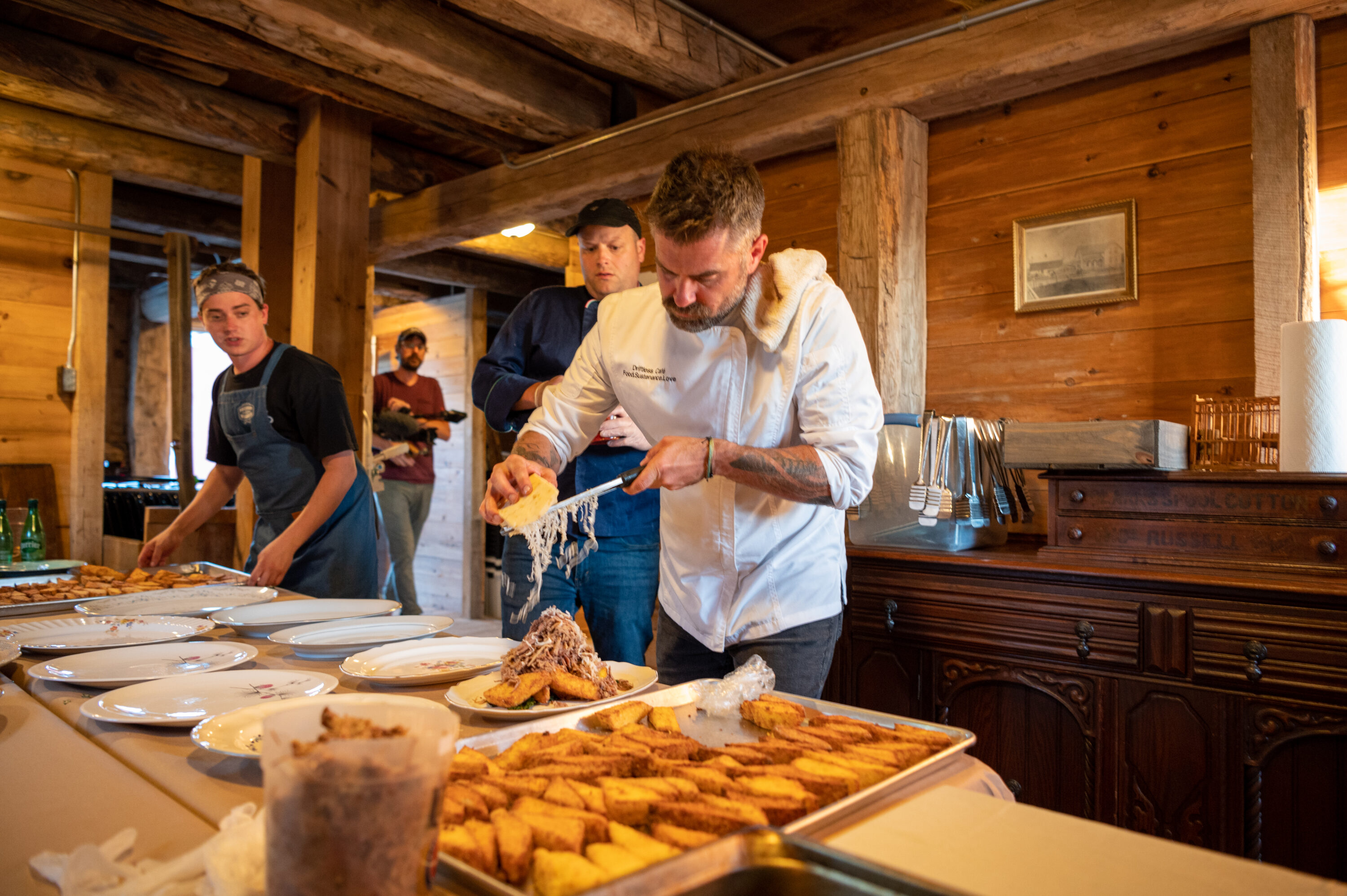
You grew up in Vernon County in Wisconsin, which has one of the country’s highest concentrations of organic farms. How food is made is central to a way of life there. What are some of your early food memories and when did you start realizing its importance in your life?
Some of my earliest food memories are being in the garden with my mom. I grew up very blue-collar. My dad hunted and we would buy quartered animals from neighboring farms. I remember being in that garden—the green beans, the sweet corn, the different vegetables growing, tomatoes left to ripen on the picnic table in the yard. All those feelings and memories were absolutely instrumental for me because they were such an ingrained way of life. I never really questioned where food came from. We didn’t have a lot of restaurants in our area. We never got takeout. It was a choice my parents made that seemed completely normal to me. On my birthday, my grandmother would show up with this buttermilk chocolate cake every year. And my mom is one of 13 kids! Think about the number of grandchildren my grandmother would drive cakes to. It was a tradition and an honor.
But growing up, I felt like a square peg in a round hole. It was really difficult to find my identity and to figure that out in the sea of what I would read in Rolling Stone or when we finally got the internet in 1998 on dial-up. I felt really strongly like I didn’t have anchors that drew me into the larger world. I was worried that I would get trapped in the hills here in southwest Wisconsin.
Then, when I went away to college in Chicago, I was homesick, and I was broke, and I was lonely. I didn’t really have any support systems there. But I did have a stack of coupons from Organic Valley [a large Vernon County food producer] that they had given to kids going out into the larger world, and I wandered into Whole Foods for the first time. It was such a foreign concept. We had food cooperatives and small grocery stores and farmers markets back home, but I never really considered where the populations of Chicago, New York, and L.A. go for good, clean, delicious food. So, I walked in and I definitely didn’t have money for any of the other groceries but I saw that Organic Valley display and I picked up the product, flipped it over, and saw the words La Farge, Wisconsin. It was so validating. You know, for a kid who grew up in a really small town, it was literally one of my only connections to a larger world.
I love this vision of you leaving home and being in this foreign-feeling place—only a state over!—but having your upbringing thrown into a new light for you. How has the sense of place in Wisconsin impacted your process and work?
When I left Chicago and moved to Madison, I was working at a restaurant and starting to mess around with food fads of the day, like molecular gastronomy. I was working for this amazing chef, a mentor of mine, and he literally grabbed me by the head and was like, “You are from ground zero of the organic and good food movement. Cook it with your whole heart.” From there, I carried that identity into the restaurant, the show, and everything I do.
I think the sense of place here is overwhelming. I’ve thought at different points in my career, I would love to go to other great food scenes. I have dear friends in other places who cook with the same passion and sense of connection that I do. But the idea of restarting a network of farms and figuring out where all that food comes from is so overwhelming. And maybe my palate is attenuated to this place. That Midwestern bio hack of salty and sweet, and, of course, if you can make it fried—done, you’re in. Does that palate really translate to a place like New York City or L.A.? Different parts of this country have such different food identities.
So, when I think about local food, I think about things that really promote a sense of place. Like, the indigenous network of producers here in the upper Midwest is thriving. And it’s so amazing as a chef to meet and hear the stories about why they do what they do. It becomes so much more invigorating for me to serve Oneida white corn for instance, which [the Oneida Nation grew as] a response to being absolutely displaced after the Revolutionary War. They’ve quietly been growing this ceremonial sacred corn—they believe that their DNA is interchangeable with this corn’s DNA. To have access to that and to lift it up is so much more captivating for me. I feel like if I can communicate their story in a way that honors those ingredients and honors their struggle it can create awareness.
Everyone eats. There’s so much beauty in realizing that humaneness and that oneness. I’m a chef in the Upper Midwest who’s really interested in lifting this culture up and preventing it from ever being considered flyover country again.
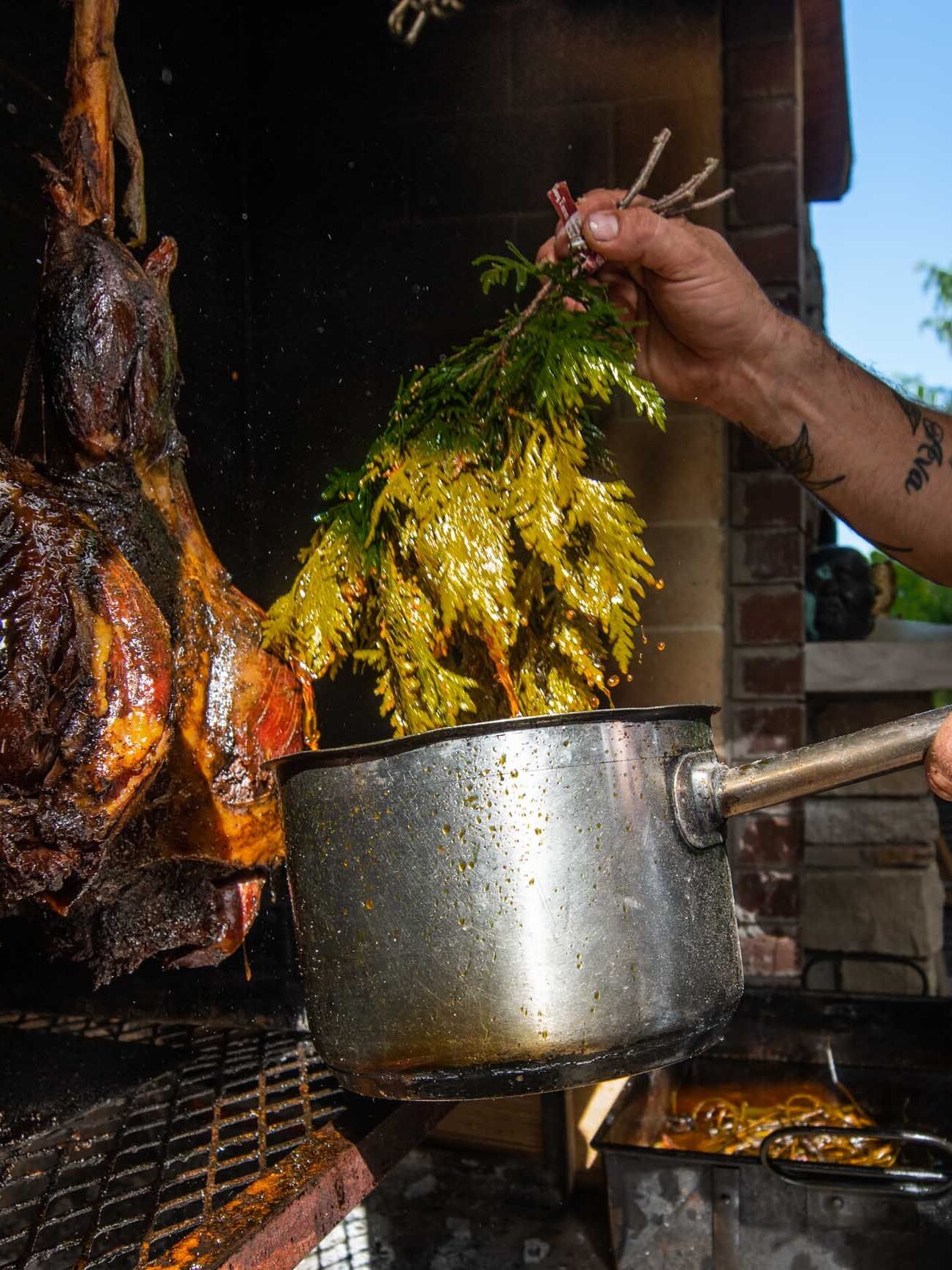
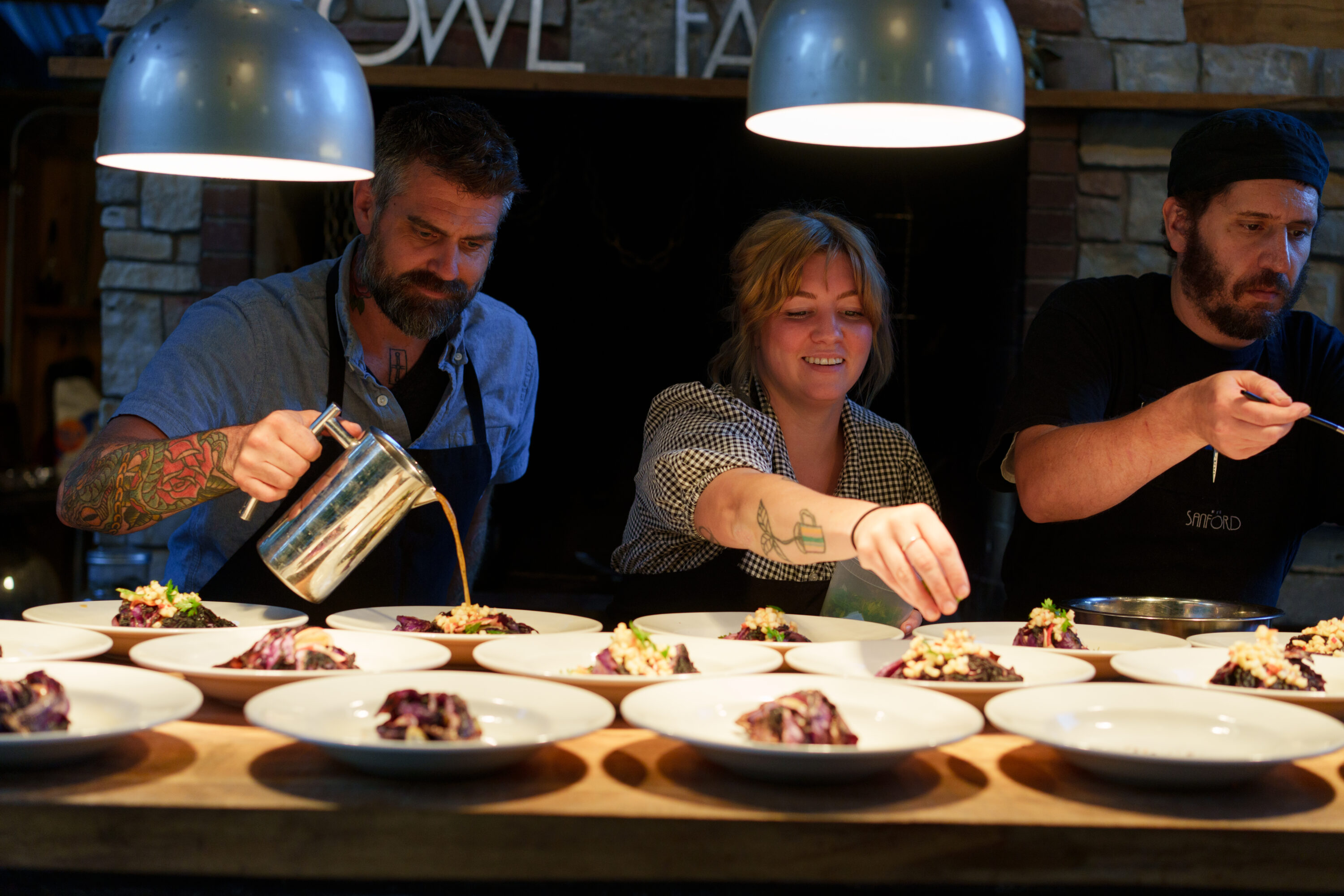

I’ve had the good luck to enjoy a few dinners made by you and your team, and each one has been its own totally immersive experience. Every course was accompanied by a moving story of inspiration and ingredients, which enhances the food itself so much. How did you begin to develop this storytelling aspect?
At first, it developed as a defense mechanism, quite frankly. I was having to justify a lot of cooking decisions when I worked as a corporate chef for Epic Systems, a medical software company. I was asked to help them start their culinary program. I had to basically justify my existence to their CEO, Judy Faulkner, who is a genius. I wanted to bring more local food in. We served 4,000 people a day and we were cooking from scratch—not just offloading trucks and warming stuff up. It was real food. Getting local farmers involved in an operation like that can have a big impact on the local food system. Sometimes it meant they could quit their second jobs off the farm and just focus on being the best farmers they could be. That was a real moment of revelation: Oh, okay, we have a platform through producing food that tastes good and looks good and has values and an ethos behind it.
The whole idea of starting our restaurant, Driftless Cafe, here in Viroqua, Wisconsin, was to put a spotlight on the farmers and the food producers of the upper Midwest. If we can get money into that community and get people engaged and interested in their practices and organic, biodynamic, and regenerative standards—all the modes of farming outside of conventional models—that would be really exciting.
If you don’t know about food, and you come down to Driftless, I want you to hear about Matt and Kate and how they grow all these carrots with their sons. They’ve put everything on the line to bring these carrots to your table and they’re the best carrots you’ve ever had. We would get folks who came in from New York and say things like “Oh my God, this melon is the best melon I’ve ever had.” And this grumpy old guy sitting behind them is the farmer of that melon and they got to meet him. Being a farmer is not easy, nor is it always fun, nor is it deeply rewarding on a lot of levels. These are the people that choose a lifestyle of, in some ways, intentional inefficiency. But when you can see it all come together, even if it’s just for a moment…those moments keep me moving.
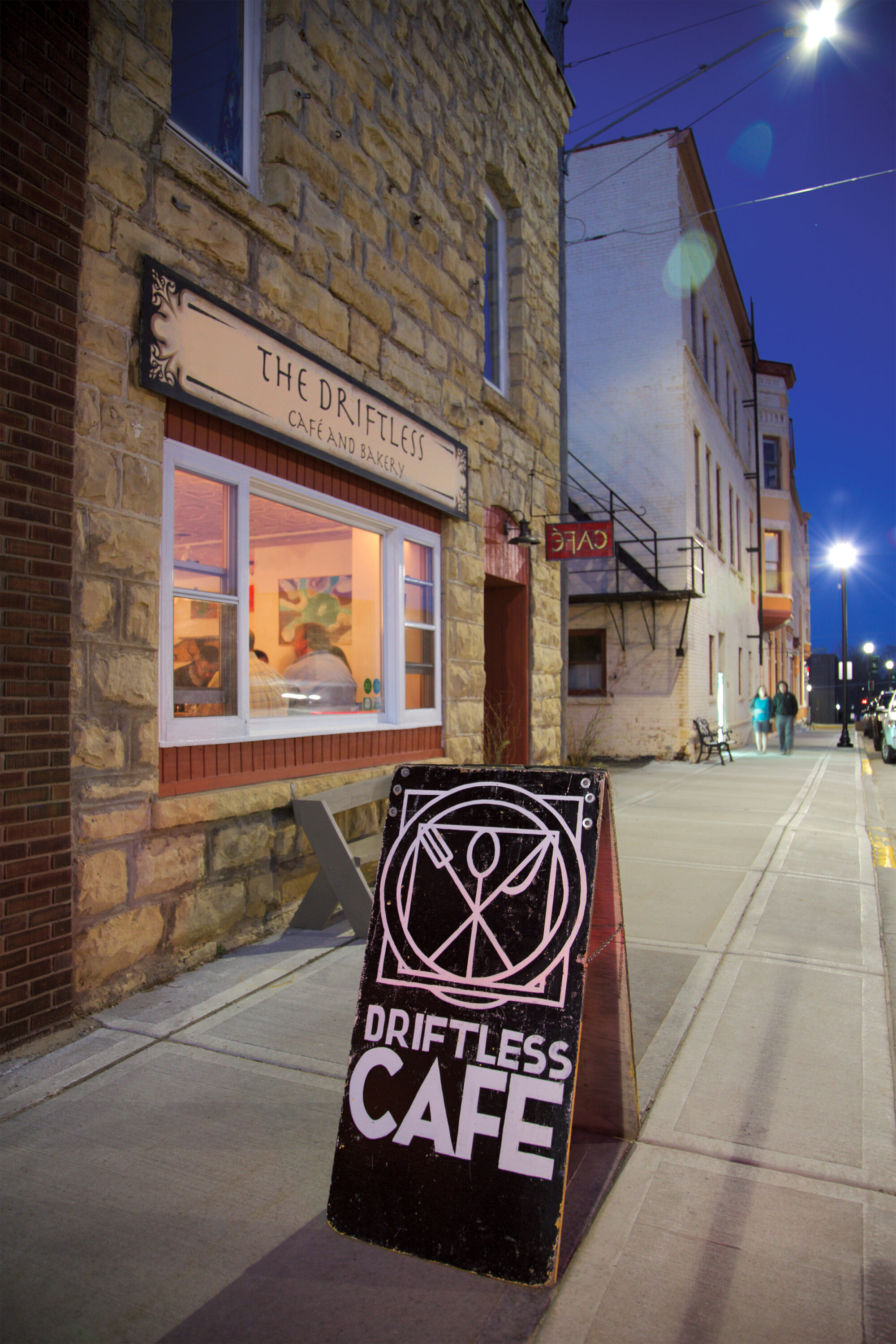
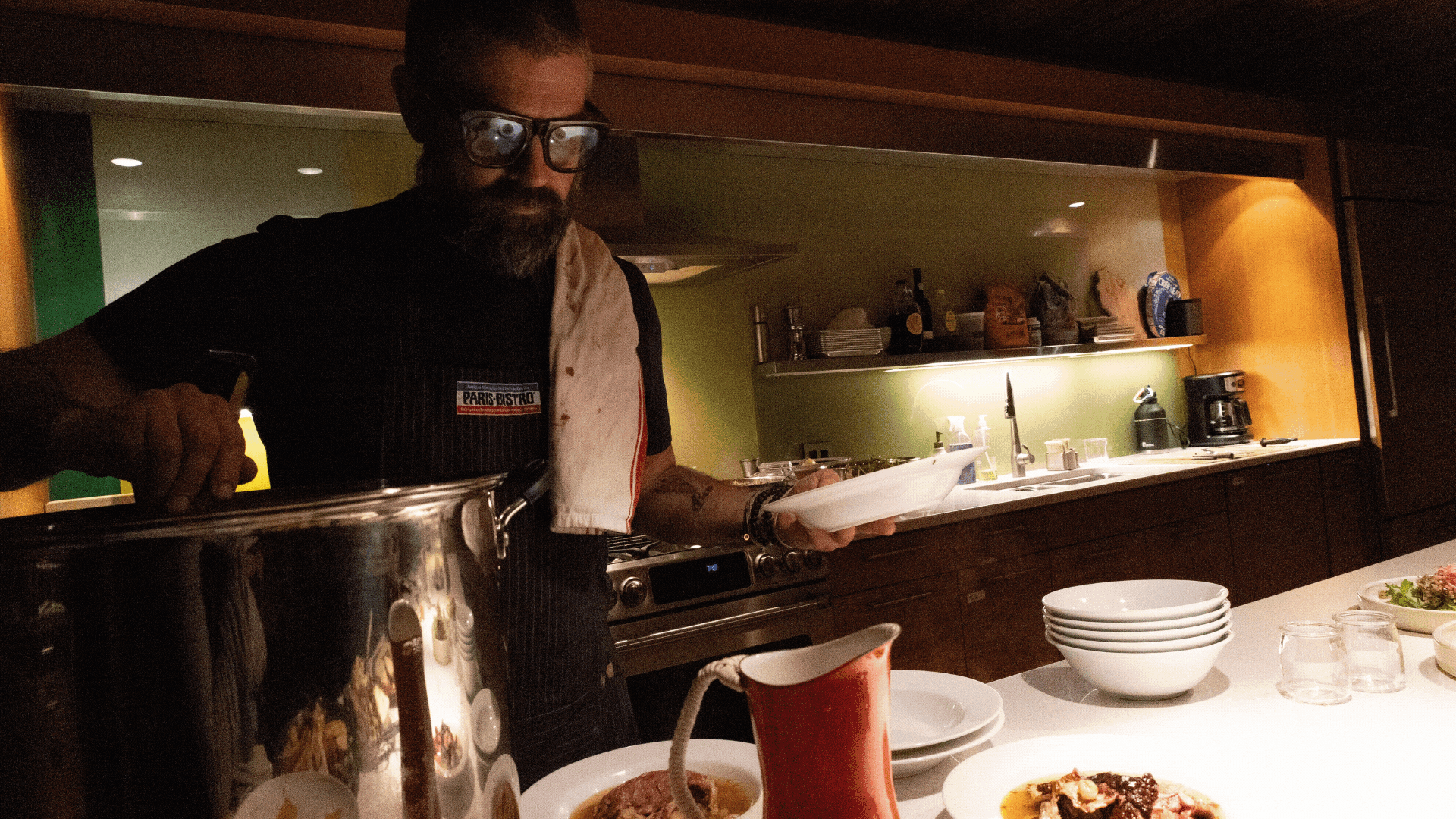
Is there a moment along your journey when you almost threw in the towel?
Um, every waking moment? [laughs] No. One of them was in 2017. I had the distinct honor of being recognized as a James Beard semifinalist, an accolade I never really considered getting, so when we made it, it was incredible. It was this whirlwind. It was the first time I’ve ever experienced that kind of media reaching out. You know, Who are these people running this restaurant in a really small town of 4,000?
And it was great but what started to creep in was this serious impostor syndrome. It made me so self-conscious that every time people would come into the restaurant, if the experience wasn’t perfect I would comp their meal. I was so dedicated to this idea of, I need to be this standard of chef. It started to become really, really devastating. And the cafe started to have a bit of financial trouble. At some point I had the idea to get on Guy’s Grocery Games and try to win the $20,000 prize so I could, for instance, pay the premium on my staff’s health insurance. I got all the way to the championship episode and I lost to a Fluffernutter sandwich that my really talented competition made.
Then, when the James Beard winners list came out in 2018, I wasn’t on it and that was emotionally devastating. It really felt like I had climbed into this hole—that through the success and higher aspirations, I’d gotten trapped, and it was lonely and isolating. Fortunately, there was an incredible support system in the restaurant, and we got help, and I learned to draw some healthy boundaries for myself. Around this time, I was offered a platform on PBS and had the opportunity to showcase the best of Midwestern food culture, which other food networks didn’t think people gave a shit about.
That’s kind of a dream come true.
Yeah, absolutely, and a lesson about pressure—the pressure of something like James Beard and that system and then having a door open in another way.
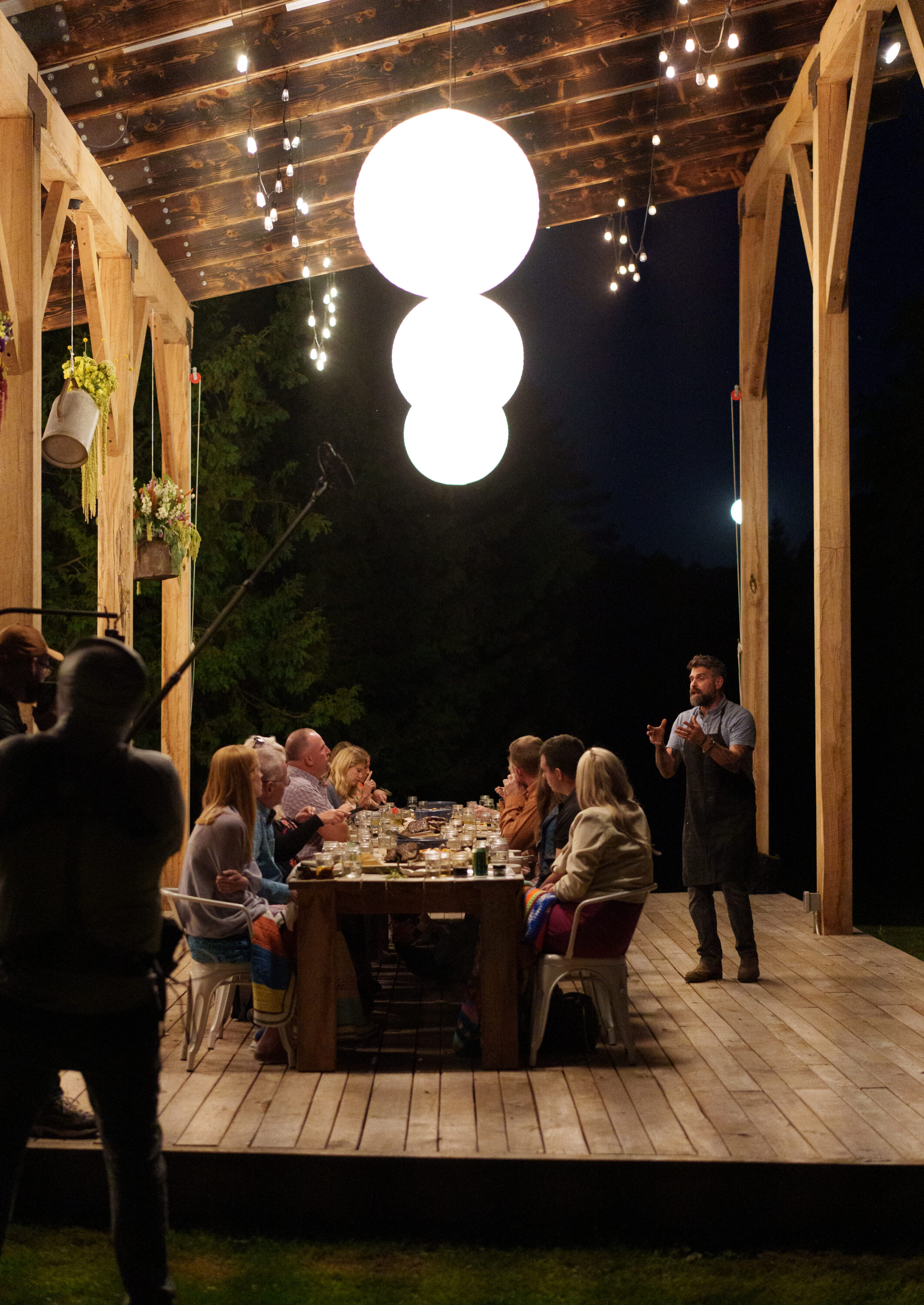
You’ve had such a broad range of episodes on Wisconsin Foodie. What are some of the more surprising moments you’ve experienced while filming the show?
We were at a big music and agriculture event talking to different people when these two women dressed to the nines came and sat down—Laura Manthe and Dr. Toni House, indigenous women from the Oneida Nation. They talked to us about Ohe·láku, which means “people of the corn” or “one who walks among the corn” and how they’re growing heirloom and sacred varietals of corn outside of Green Bay, Wisconsin, on the reservation that they hold.
We ended up taping with them and as I was driving through Freedom, Wisconsin, the town that directly borders their reservation, I had a real moment of understanding the deep juxtaposition of a people existing on a small thumbprint of land, and calling it Freedom. That taping was wild. We were in this unconventionally planted cornfield with Laura Manthe as she was reaching up on this really tall stalk and picking this ear of corn. She unfurls it and it’s got these little kernels that have their own little peels on the inside. She starts weeping and she’s like, This is grandmother corn. Our creation story is tied to this corn. An incredible story of survival through colonialism and the Revolutionary War.
Laura explained that the farmers around the border of the reservation have been offered deals with Monsanto to grow Monsanto crops. If that pollen drifts into their heirloom white corn the intellectual property rights for that corn become the property of Monsanto. It was such a clear picture of how oppression continues and takes new shape. It is devastating and a real and pressing threat. That was so eye opening for me. I had the opportunity and, thankfully, the grace and patience of the Oneida people, to break down some of that colonial mindset I held, that I had never been aware of. To this day I find myself wanting to work more of those ingredients [into my food], to help those ingredients and stories and nonprofits remain.
There are so many more stories just like this. And all of those stories, compounded with a lot of factors from my own life, showed me how food is such a powerful tool for connection. If we open ourselves and can be a little vulnerable, with our ego and our fragility and our sense of not knowing, it can be uncomfortable and really scary and daunting, but food provides a fantastic medium to let some of those boundaries go and allows us to really engage with each other.
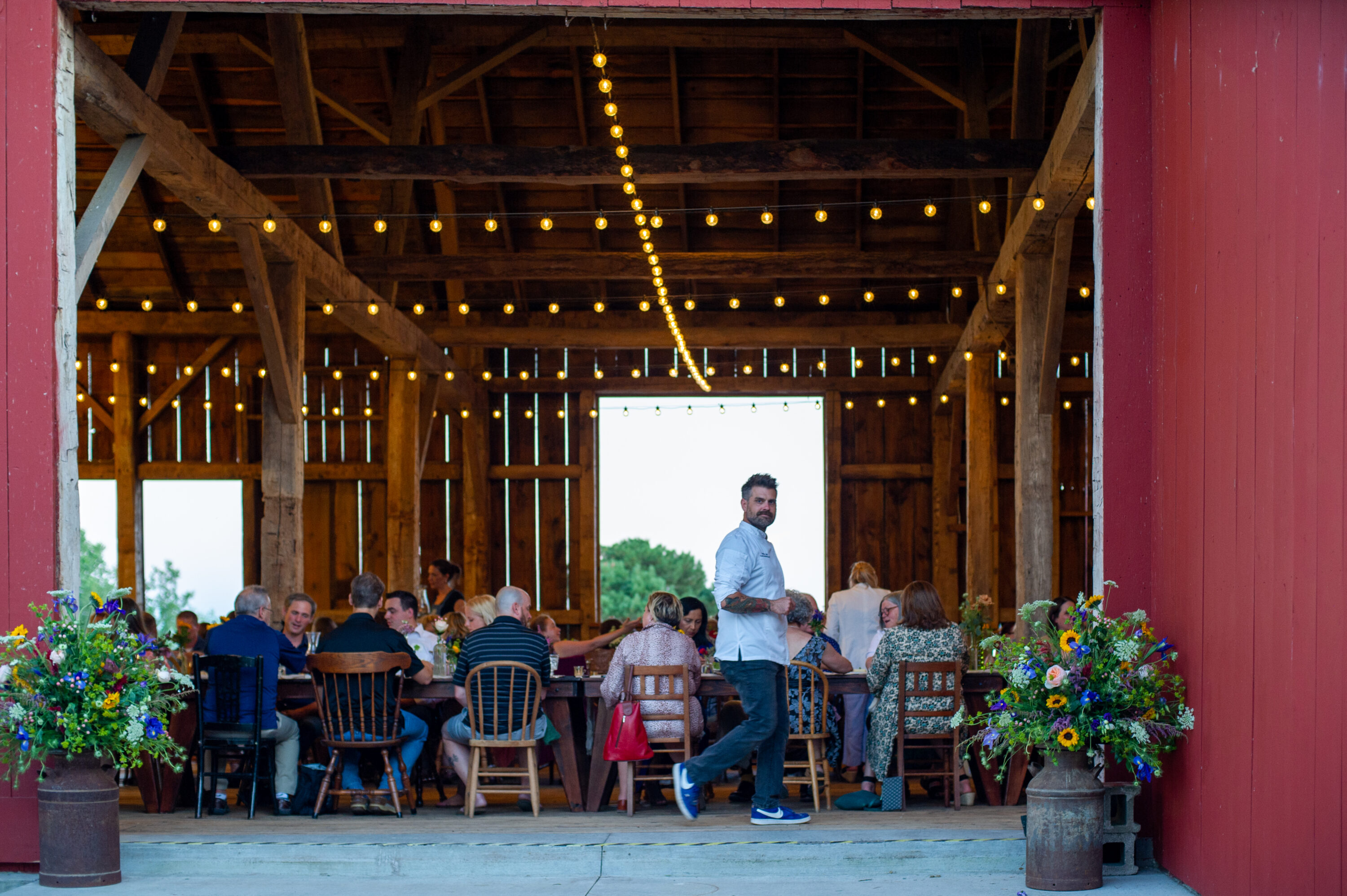
What are you looking forward to next that continues this mission of connection?
I’m really loving finding stories that break up the homogenization of the Midwestern identity. There are so many storytellers in this area who are doing amazing work and are unrecognized. The events we’re hosting at Owl Farm, our more experimental space this summer are all about connecting chefs. We’re working with Justin Aprahamian of Sanford Restaurant in Milwaukee to do a dinner menu inspired by Nine Inch Nails’ “Hurt,” as well as Chef Dane Baldwin of the Diplomat in Milwaukee and Patrick O’Halloran of the Deliciouser in Madison. All are really, really good at what they do—and it’s a way to connect more creatives.
Another concept we’re planning is a dinner where I’ll be responsible for cooking the welcome and dessert courses, but two traveling guest chefs will cook the others using their cultural histories to examine a conflict through their dishes.
These ideas are about how food can help break down barriers. How do we reduce dissonance through the act of dining and try to make mindful spaces and experiences where people can come in with maybe their lack of information or preconceived notions, sit down, and talk about it in a space that is free from distraction—no cell phones, please.
That’s really what my food and food experiences are designed to do. To disarm people into this place of vulnerability, so they have to participate in a very personal and sometimes creative way, which makes some people uncomfortable. I want to bring people into these connective spaces and show how we can care for each other. We can create a system that actually serves itself. In our case, it’s a food system. Maybe that’s an act of revolution.
